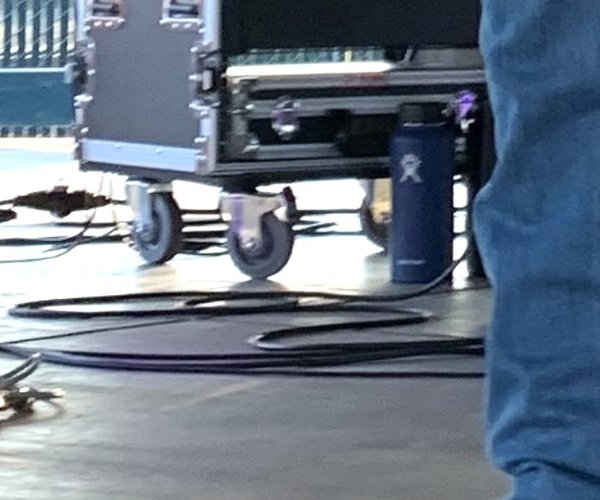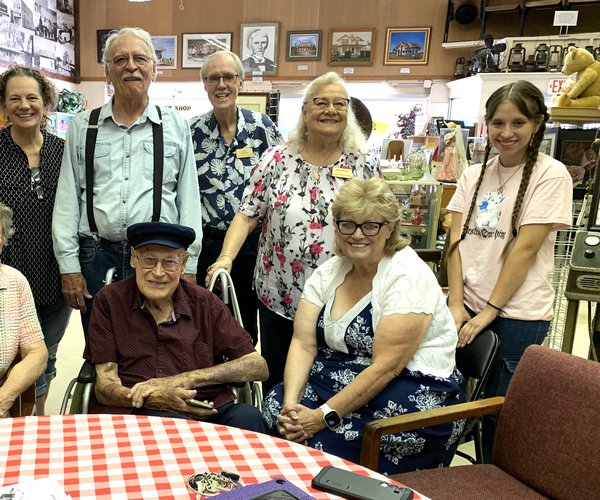mjackson@escalontimes.com
It took about 90 minutes to review the various options Monday night, and Escalon City Council members agreed all would have "significant impacts" on the community.
No action was taken by the council, which looked over the various grade separation proposals done in conjunction with the Measure K transportation program.
A few years ago, an Escalon grade separation was ranked as 'highest priority' through Measure K ballot and polling when the measure was renewed. Goal of the project by BKF was to evaluate the feasibility of using grade separations to remove vehicle/train conflict in neighborhoods, along with business and commercial areas "isolated by railroad corridors," according to the study.
Positive effects are seen as decreasing traffic delays, allowing for east-west connectivity, increasing safety and reducing response time for emergency service officials.
Among the areas included in the evaluation process to pinpoint likely sites for the grade separation were:
• Safety conditions - Number of accidents, vehicular volume and speed, rail frequency and speed, emergency response time.
• Constructability - Future rail expansion, type of grade separation, stage construction.
• Impacts - Business disruption, right of way acquisition, ingress/egress and circulation issues.
• Cost - Utility relocations, right of way, construction.
There were 10 different alternatives studied in the preliminary design process but four were determined to be not viable in the early going. All had "significant operational and traffic circulation impacts" to local streets and access, in addition to directly affecting multiple homes and businesses.
That left six alternatives for further study and BKF officials offered schematic drawings of both roadway overpass and underpass designs at Monday's meeting.
Alternatives reviewed by council members at the special workshop session included the Liberty Business Park overpass/underpass, State Route 120 underpass, McHenry Avenue/120 underpass, First Street underpass, Third Street overpass/underpass, and St. John Road.
Officials from BKF offered information about each alternative, outlined the constructability, impacts and potential cost for each, with costs ranging from a low of $17 million for the Liberty Business Park overpass up to $92 million for the McHenry Avenue underpass. Third Street underpass was tagged at $24 million, Liberty Park underpass at $25 million, with $36 million the projected cost for a First Street overpass, $40 million for a First Street underpass and $44 million for a State Route 120 underpass.
"One of the issues we keep coming back to is what is the intent," explained City Manager Greg Greeson. "Is it to help local traffic and improve public safety or is it to move traffic through town."
Greeson said more study is needed on the alternatives to more adequately address the impact each would have on the surrounding residences and businesses.
Council members took no action Monday night, just listening to the report by BKF. Greeson said he planned to meet with representatives of the San Joaquin Council of Governments, COG, to see what requirements might be regarding city participation, since this is a project that was set in motion through COG and the Measure K renewal.
"Any one of these could have a dramatic impact on the community and the council is very cognizant, very aware of that," Greeson said. "I need to go through all the comments, meet with COG, then give some options to the council."
Those options could include doing nothing at this point other than accepting the study and agreeing to look at a grade separation "down the road," Greeson said.
Installation of double tracks on a stretch of railroad between Riverbank and Escalon has greatly reduced the problems with trains blocking tracks through town and that issue was one of the main factors driving the grade separation study. The fact that the impact has lessened actually makes grade separation a less desirable option than it was a few years ago.
And, officials note, cost is a huge factor.
"There's not money available right now anyway," Greeson said.
Among those attending the Monday night workshop, in addition to council members, staff, BKF officials and three COG representatives, were former councilman Marty Van Houten and longtime local businessman Art Sipma. A handful of residents also turned out to hear the report.
Greeson said officials will move ahead cautiously.
"Any staff recommendation will be focused on the community, the local needs first," he said.
A recommendation for council action could be made at the April 20 council meeting.
It took about 90 minutes to review the various options Monday night, and Escalon City Council members agreed all would have "significant impacts" on the community.
No action was taken by the council, which looked over the various grade separation proposals done in conjunction with the Measure K transportation program.
A few years ago, an Escalon grade separation was ranked as 'highest priority' through Measure K ballot and polling when the measure was renewed. Goal of the project by BKF was to evaluate the feasibility of using grade separations to remove vehicle/train conflict in neighborhoods, along with business and commercial areas "isolated by railroad corridors," according to the study.
Positive effects are seen as decreasing traffic delays, allowing for east-west connectivity, increasing safety and reducing response time for emergency service officials.
Among the areas included in the evaluation process to pinpoint likely sites for the grade separation were:
• Safety conditions - Number of accidents, vehicular volume and speed, rail frequency and speed, emergency response time.
• Constructability - Future rail expansion, type of grade separation, stage construction.
• Impacts - Business disruption, right of way acquisition, ingress/egress and circulation issues.
• Cost - Utility relocations, right of way, construction.
There were 10 different alternatives studied in the preliminary design process but four were determined to be not viable in the early going. All had "significant operational and traffic circulation impacts" to local streets and access, in addition to directly affecting multiple homes and businesses.
That left six alternatives for further study and BKF officials offered schematic drawings of both roadway overpass and underpass designs at Monday's meeting.
Alternatives reviewed by council members at the special workshop session included the Liberty Business Park overpass/underpass, State Route 120 underpass, McHenry Avenue/120 underpass, First Street underpass, Third Street overpass/underpass, and St. John Road.
Officials from BKF offered information about each alternative, outlined the constructability, impacts and potential cost for each, with costs ranging from a low of $17 million for the Liberty Business Park overpass up to $92 million for the McHenry Avenue underpass. Third Street underpass was tagged at $24 million, Liberty Park underpass at $25 million, with $36 million the projected cost for a First Street overpass, $40 million for a First Street underpass and $44 million for a State Route 120 underpass.
"One of the issues we keep coming back to is what is the intent," explained City Manager Greg Greeson. "Is it to help local traffic and improve public safety or is it to move traffic through town."
Greeson said more study is needed on the alternatives to more adequately address the impact each would have on the surrounding residences and businesses.
Council members took no action Monday night, just listening to the report by BKF. Greeson said he planned to meet with representatives of the San Joaquin Council of Governments, COG, to see what requirements might be regarding city participation, since this is a project that was set in motion through COG and the Measure K renewal.
"Any one of these could have a dramatic impact on the community and the council is very cognizant, very aware of that," Greeson said. "I need to go through all the comments, meet with COG, then give some options to the council."
Those options could include doing nothing at this point other than accepting the study and agreeing to look at a grade separation "down the road," Greeson said.
Installation of double tracks on a stretch of railroad between Riverbank and Escalon has greatly reduced the problems with trains blocking tracks through town and that issue was one of the main factors driving the grade separation study. The fact that the impact has lessened actually makes grade separation a less desirable option than it was a few years ago.
And, officials note, cost is a huge factor.
"There's not money available right now anyway," Greeson said.
Among those attending the Monday night workshop, in addition to council members, staff, BKF officials and three COG representatives, were former councilman Marty Van Houten and longtime local businessman Art Sipma. A handful of residents also turned out to hear the report.
Greeson said officials will move ahead cautiously.
"Any staff recommendation will be focused on the community, the local needs first," he said.
A recommendation for council action could be made at the April 20 council meeting.





